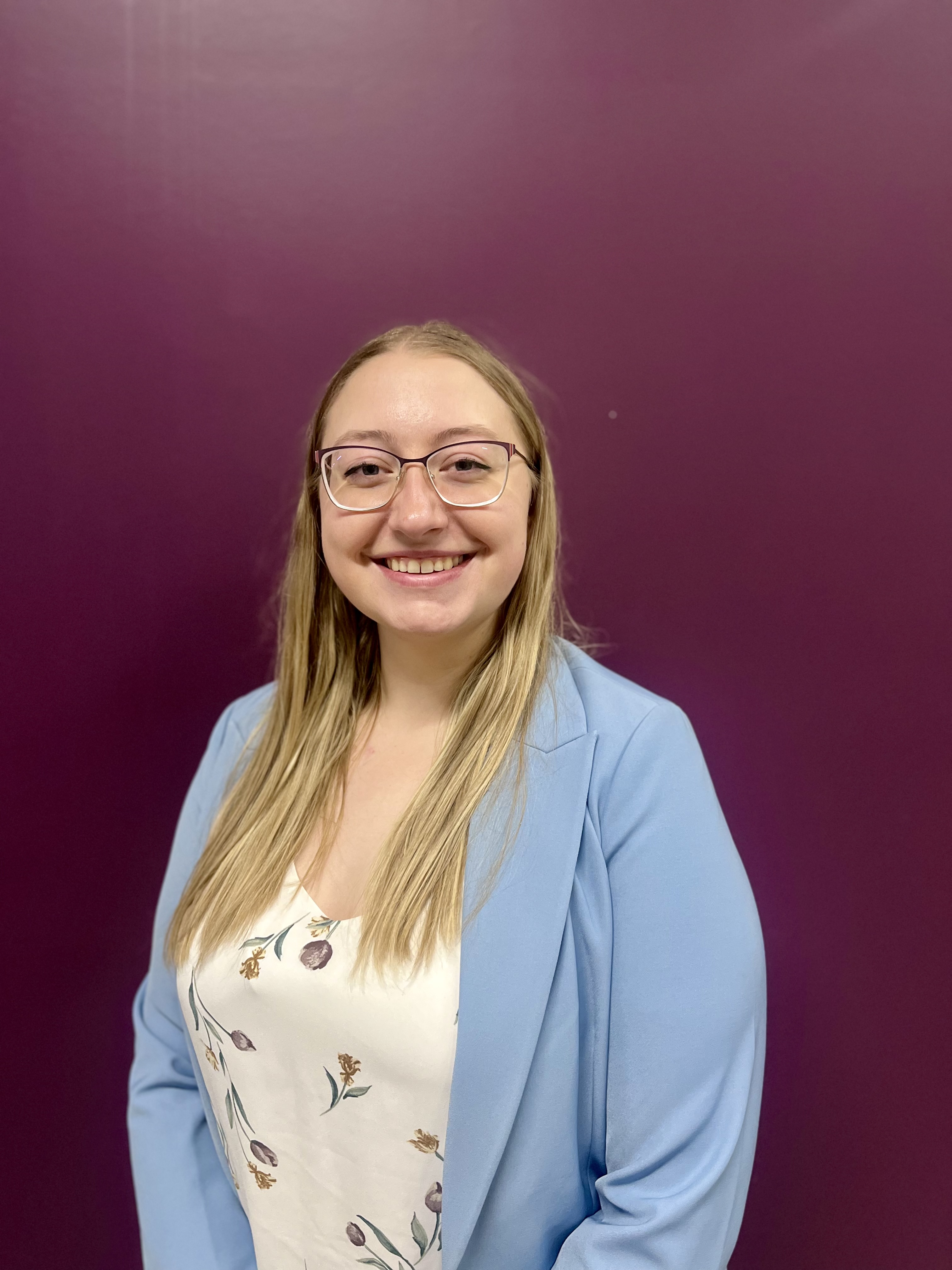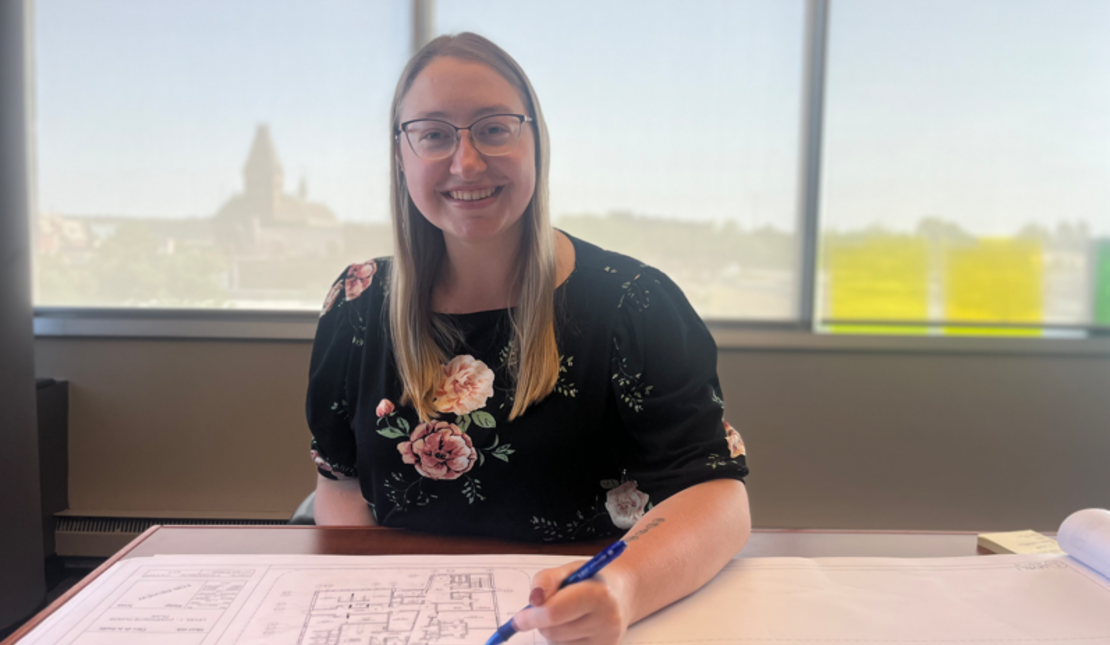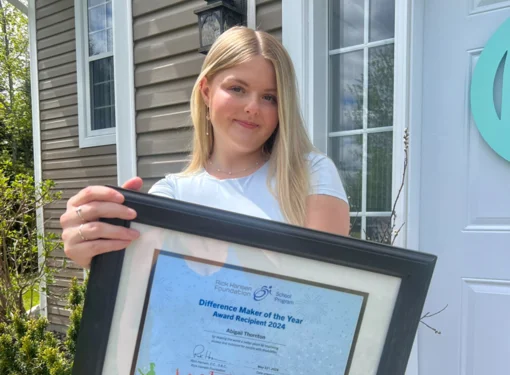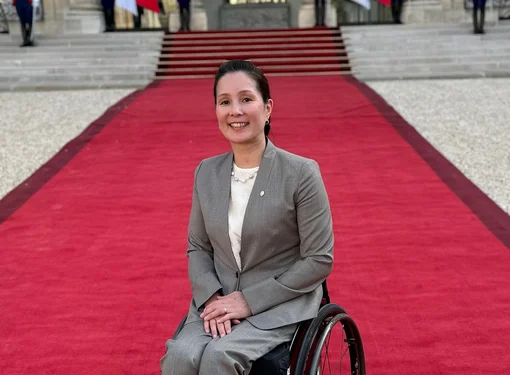Engineering & Accessibility: Connecting Passions to Build a Career
Only five months into her engineering degree at the University of New Brunswick, when Cassandra Pitchford was just a first-year student, she started to lose her hearing.
“Suddenly school was more than just adjusting to the workload, it was a journey for myself to figure out how to learn how to navigate the world around me and advocate for myself,” she explained. This personal experience sparked a passion for accessibility and advocating for better access.
Cassandra has always wanted to better the world around her – public service being something that has been deeply ingrained in her. This translated seamlessly to her educational track of engineering. With her hearing loss, she started asking herself questions about her future career. “People around me questioned how a person with hearing loss can become a professional engineer and I began to wonder the same. Then with more thought, I realized that engineers shape the world around us and having diverse voices in this profession is critical to an accessible and inclusive world.”
With that thought, Cassandra set out to figure out how to bring her lived experience to her engineering work. “I started looking for ways to marry my engineering studies with my advocacy.” she said. “That’s how I found the Rick Hansen Foundation.”
Becoming an RHFAC Professional

In her final summer as a student, she had the opportunity to join the Department of Transportation and Infrastructure’s (DTI) Buildings Group in the Government of New Brunswick. It was during this time that she was able to take the Rick Hansen Foundation Accessibility CertificationTM (RHFAC) Professional Training, truly being able to merge her two passions – access and engineering.
The RHFAC Training course teaches individuals how to use the RHFAC methodology to rate buildings on their level of meaningful access. Upon successful completion and passing the subsequent RHFAC Professional exam, individuals will obtain their RHFAC Professional designation, qualifying them to conduct RHFAC ratings for existing buildings and pre-construction plans. The training course provides a baseline understanding of how to interpret accessibility in the built environment.
Cassandra became an RHFAC Professional in January 2024 – one of the first in the Government of New Brunswick.
“RHFAC has played a big part in connecting my engineering and advocacy,” she said. “It was a natural next step in continuously learning and bringing that lens to my work.”
Upon graduation, Cassandra returned to the Department of Transportation and Infrastructure in the Government of New Brunswick, where she now works to incorporate as much Universal Design as she can such as completing design reviews on major capital projects such as schools.
Building a Career
“When you become an engineer, you can choose to get your Iron Ring. When you do this, you take what is called the obligation – a tenet of which is a commitment to uphold paramount the safety of the public. I think accessibility is an ingrained part of this.”
She works on DTI’s major projects team now in an accessibility leadership role, bringing her expertise to her work in New Brunswick.
“We were already going above code, but RHFAC has helped us learn and approach projects with a lens we couldn't before. It also opened up areas for improvement, for example wayfinding,” Cassandra said. “I had never thought as much about wayfinding before RHFAC Professional Training. Now it’s always at the front of my mind and we incorporate it into more projects. Engaging in the RHFAC Accessibility Professional Network allows me to stay on top of national best practices for improving access which in turn allows us to build better inclusive buildings for New Brunswickers.”
For Cassandra, accessibility is critical in engineering, something she wants to share with others. She wants to continue to generate awareness and hopes more people will begin to get their RHFAC Professional designation, supporting the creation of a culture of accessibility.
“I am grateful to regularly present and make presentations on accessibility, advocacy and my work,” she explained. “It is just important to learn as much as you can as sharing that knowledge and teaching others.”
----
To learn more and to register for RHFAC Professional Training visit our website.






